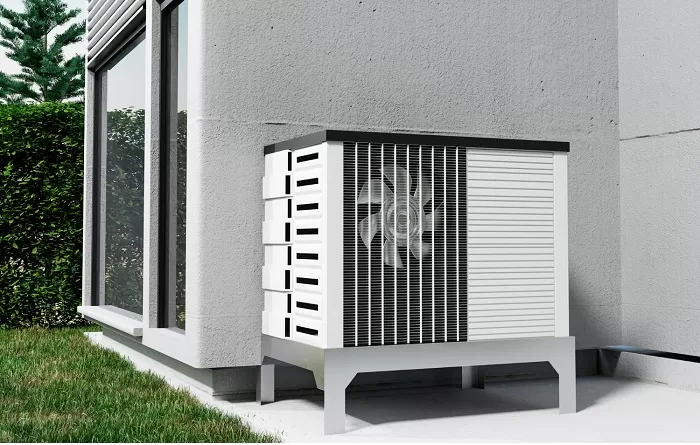Lifestyle
How To Choose The Right Heat Pump For Your Home

Are you in the market for a new heat pump? If so, you may wonder which type is best for your home. There are four types of heat pumps – ducted air source heat pump, ductless air source heat pump, absorption heat pump, and geothermal heat pump. Each type has its benefits and drawbacks. Here is a breakdown of each type of heat pump so you can decide which one is right for you.
Ducted Air Source Heat Pump
Ducted air source heat pumps are heating and cooling system that uses outdoor air to heat and cool your home. The outdoor unit contains a compressor, condenser, and evaporator coils. The outdoor unit is connected to an indoor unit through a system of ducts. The indoor unit includes a blower that circulates the air through the vents and into your living space. The heat pump works by taking advantage of the fact that the air temperature outside is cooler than the temperature inside your home.
In the summer, the heat pump removes heat from your home and transfers it to the outdoors. In the winter, the heat pump reverses this process and transfers heat from the outdoors into your home. It makes ducted air source heat pumps a highly efficient way to heat and cool your home year-round.
Ductless Air Source Heat Pump
A ductless air source heat pump (ASHP) is a type of air-source heat pump that does not require ductwork to distribute cooled and heated air throughout a home or building. ASHPs are also sometimes referred to asmini-splits or zoned systems. Unlike central air conditioners and furnaces that use ductwork to deliver conditioned air, ASHPs have individual air handlers mounted on walls in different rooms or zones.
A single outdoor unit, called a condenser, connects to each indoor air handler via refrigerant lines. Each zone has its thermostat so that the system can deliver different temperatures to different home or office areas. ASHPs are typically more energy-efficient than traditional HVAC systems and can be used for heating and cooling. In addition, ASHPs do not require as much maintenance as conventional systems and are easier to install. Besides, you can always contact with BelRed Heating, Cooling, Plumbing & Electrical for maintenance purposes.
Absorption Heat Pump
Absorption heat pumps use a refrigerant that evaporates and condenses to absorb and release heat. The refrigerant is circulated through a closed loop, and the heat pump uses a compressor to pump the refrigerant through the loop. As the refrigerant evaporates, it absorbs heat from the surrounding air, and as it condenses, it releases heat. This process can be reversed so that the heat pump can either absorb heat from the air or release heat into the air.
Absorption heat pumps are most commonly used in industrial applications but can also be used in residential and commercial buildings. In residential applications, absorption heat pumps are typically used for space and domestic hot water heating. They are often used in commercial applications for space heating, cooling, and hot water heating.
Geothermal Heat Pump
A geothermal heat pump is a heating and cooling system that uses the earth’s natural heat to regulate the temperature inside a home or business. The system consists of a series of underground pipes called a loop that circulates a refrigerant through the earth. During the winter, the refrigerant absorbs heat from the earth and carries it back to the building. In the summer, the process is reversed, and the refrigerant helps to cool the building. Geothermal heat pumps are very efficient and can save up to 70% on heating and cooling costs. Additionally, they have very few emissions, making them an environmentally-friendly option.
Heat pumps are an excellent option for people looking to save money on their energy bills and reduce their carbon footprint. When choosing a heat pump system, you must consider your needs and the climate you live in.

















































